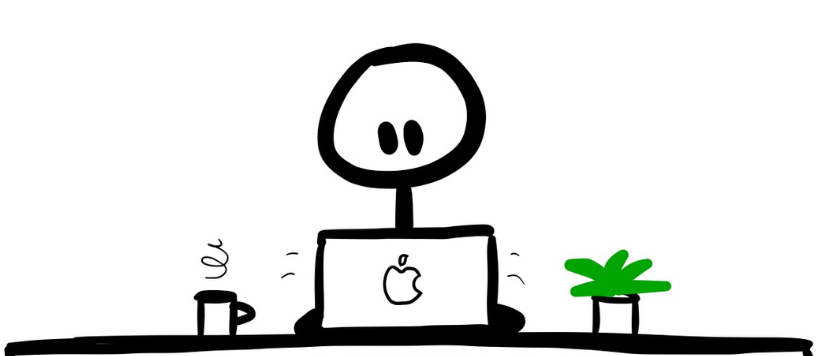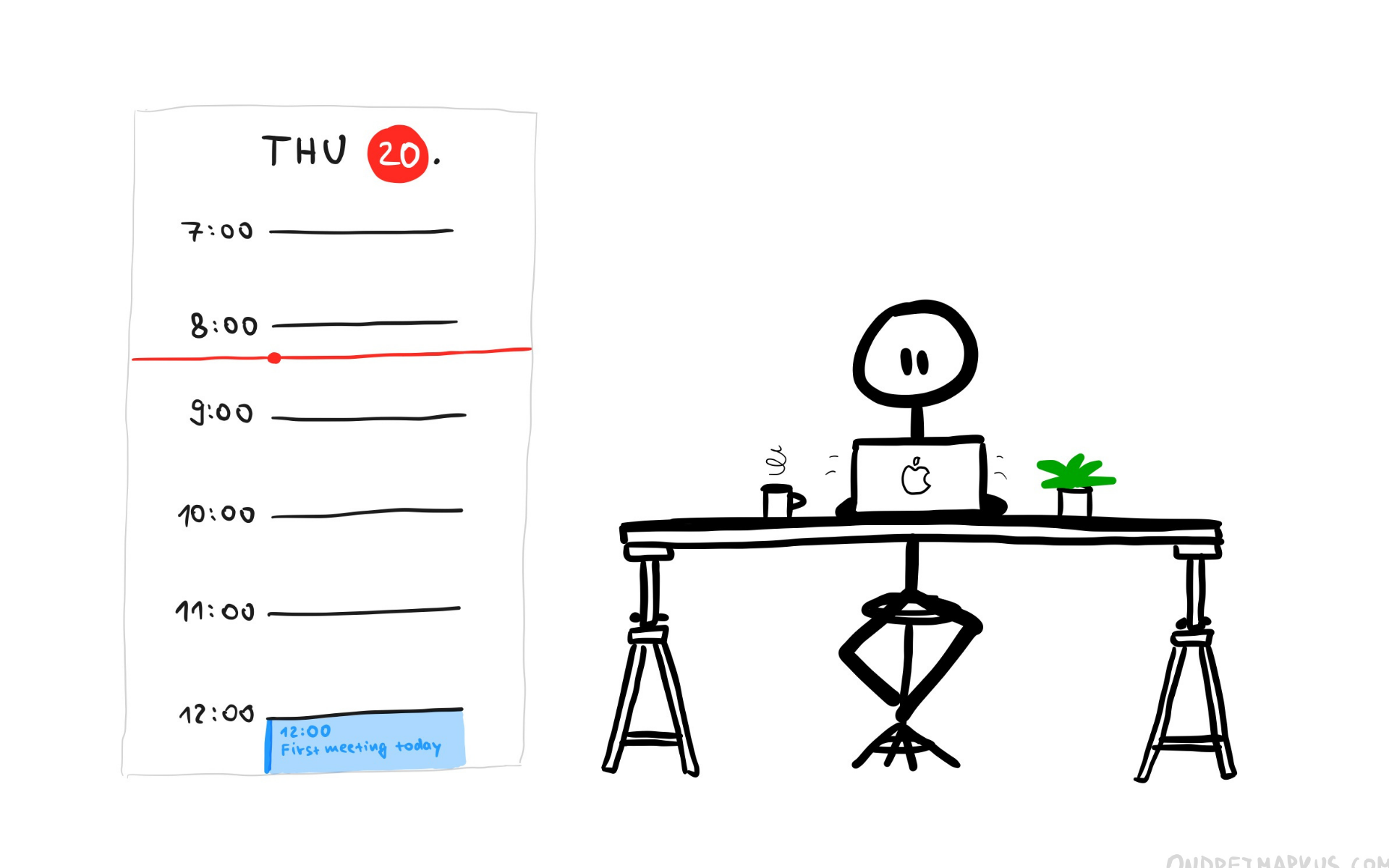Ondrej Markus
Entrepreneur in ed-tech, building the future of education as a founder and CEO at Playful.
I write about the future of education, designing learning games, and running a startup.
I'm a generalist, introvert, gamer, and optimizing to be useful.

Do the most important work first

Every morning after I make coffee and write my Morning Pages, I work until noon on the most important project of the day.
Doing or not doing what’s important makes the difference between feeling good or bad about my day.
It doesn’t matter if I worked hard for 12 hours today. If the important thing didn’t get done, I don’t feel like I did my best.
I got distracted by easier or louder tasks. I pretended something else mattered more.
It didn’t.
I just procrastinated working on what I cared about the most because it was difficult and scary.
Decide what’s important
There is no objectively important work. You decide what’s important based on what you care about.
But you don’t want to make this decision every day. Because on your bad days, you will choose to hide instead of doing the work.
Ideally, you want to have the bigger picture pre-decided and only worry about the little stuff.
That’s why I like to think about this on two levels: Macro and Micro.

Macro vs. Micro
Macro - The bigger picture
Macro decisions are the higher perspective. They usually are a long-term commitment or responsibility.
For example, I decided to publish an article every Monday and Thursday. The macro decision behind it is:
“My most important work of the day = writing an article."
This is pre-decided. It’s a commitment I made to myself and others, and until I decide to change it, that’s what my most important work is.
For others, this will be something else:
- Writing your thesis as a PhD student
- Coding a client project as a freelance developer
- Going to your dance session as a professional dancer
Micro – The details
Micro decisions are what exactly you are going to do.
- What section of your thesis are you writing today
- What feature of the app are you coding today
- What dance moves are you practicing today
If you can, decide both of these things ahead of time. It will make you more likely to actually do the work because there are no difficult decisions in your way.
However, the macro is more critical to know in advance. Because even if you pick the section, feature, or moves on the spot, you are at least going in the right direction.
How exactly you do the work is not as crucial as if you do it at all.
If you could do only one thing today, what would you do?
Create space for important work
Important work deserves a slot in your calendar because the day can easily slip away from you once you dive into emails and running errands.
I treat my day like a fragile creature that could break at any moment. I expect to have only 2-3 hours of good work on an average day (which is often true), so I make sure I use those two hours as well as I can.

Create space for important work
To me, mornings are the prime time of my day. It’s when I’m the sharpest, most focused, and energized for a couple of hours.
That’s why I block out every morning for deep work by pre-deciding to have no meetings before noon. This is my essential productivity trick.
It might not be possible for you, and that’s okay. Your window for most important work doesn’t even have to be in the morning. It can vary. Just make sure it is somewhere.
Put a two-hour block into your calendar on every workday. Dedicate this block to your most important work. You can’t do anything else at this time.
Two hours don’t fit? Make it one hour. You can accomplish more than you think with one hour a day. It will be over 300 hours in a year, and that’s something.
Focus
Okay, once you choose your most important work and pick the time to do it, you want to make sure you use the time well.
Create an environment where you can focus without interruptions.

Create an environment where you can focus.
Turn off every app that could beep on you. Get your phone to a different room or turn on the Do not disturb mode.
All my devices are automatically set to Do not disturb from 8 pm to 1 pm the next day. So nobody except for specific people can reach me when I do my most important work.
Create an environment without interruptions to make deep work possible.
Finish something
Finishing something feels good. It’s a much-needed jolt of energy and enthusiasm for you to keep going after your goals.

Finish something every day
But to beat perfectionism and say to the world: “this is finished” is a challenge that can easily turn into never-ending work sessions without any concrete result.
I’ve been there: You pour hundreds of hours into a project, and it feels like you’re not getting closer to the finish line. It feels like you’re getting away from it.
Nothing gets finished. You get demotivated and quit.
Do this instead: Divide your work into small projects you can finish in one day (or one work session).
For my articles, I use this by working with drafts and edits. So one work session (2-4 hours) is about finishing the first rough draft. Another session is about turning that draft into a second draft. In the third session, I edit the draft stylistically and grammatically. Finally, I draw pictures and schedule the article for publishing.
That’s just one example. There might be more sessions, different steps, feedback rounds, etc. But the point is: I make sure to finish something on every session, so I feel like I did some good work that day.
I won the day.

Congratulations. The day is won.
It works.
Even if I come back to the draft the next day and decide that the whole first draft is shit, scratch it, and start over, it still felt good when I finished it, and that’s the purpose of this practice.
It’s about keeping positive momentum, and finishing parts of your work helps you do that.
Divide your work into smaller pieces and aim to finish one on every session.
Find your rhythm
‘Do important work first’ is just my version of this practice. It doesn’t have to mean you have to do your work the first thing in the day.
It means: “Make sure to do your important work every day."
Whatever it takes.
This includes all those parts we talked about today:
- Decide what’s important
- Create space for it
- Focus
- Finish something
Your version of them might be different from how I do it. That’s normal.
- Your studies or day job might pose constraints you need to work around.
- Your prime time might be at night, not mornings.
- Your type of work might require you to be ready on your phone or email.
All of that is okay. The world rarely gives us the perfect conditions to work with. So we either need to create our own or learn to work in imperfect ones.
The rule above all rules is that you should do what works for you.
As long as you’re finishing important work while enjoying the process, your system is working.
It might not be 100% optimal, but no system ever is. Keep trying new things and improve little by little.
Find your daily rhythm to do your most important work.